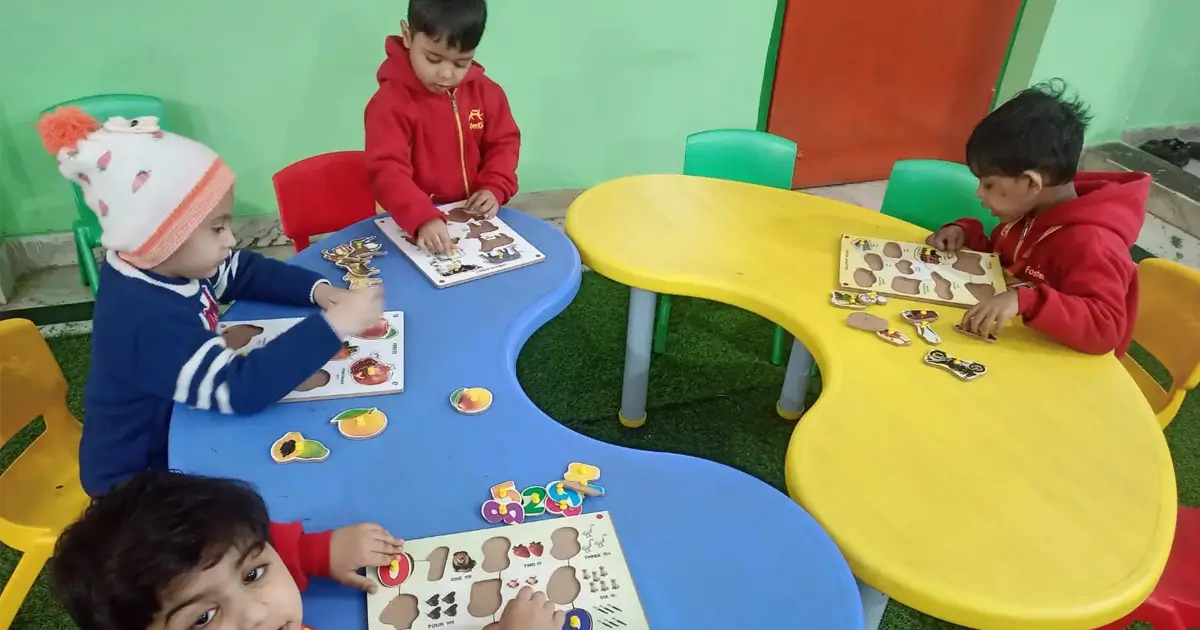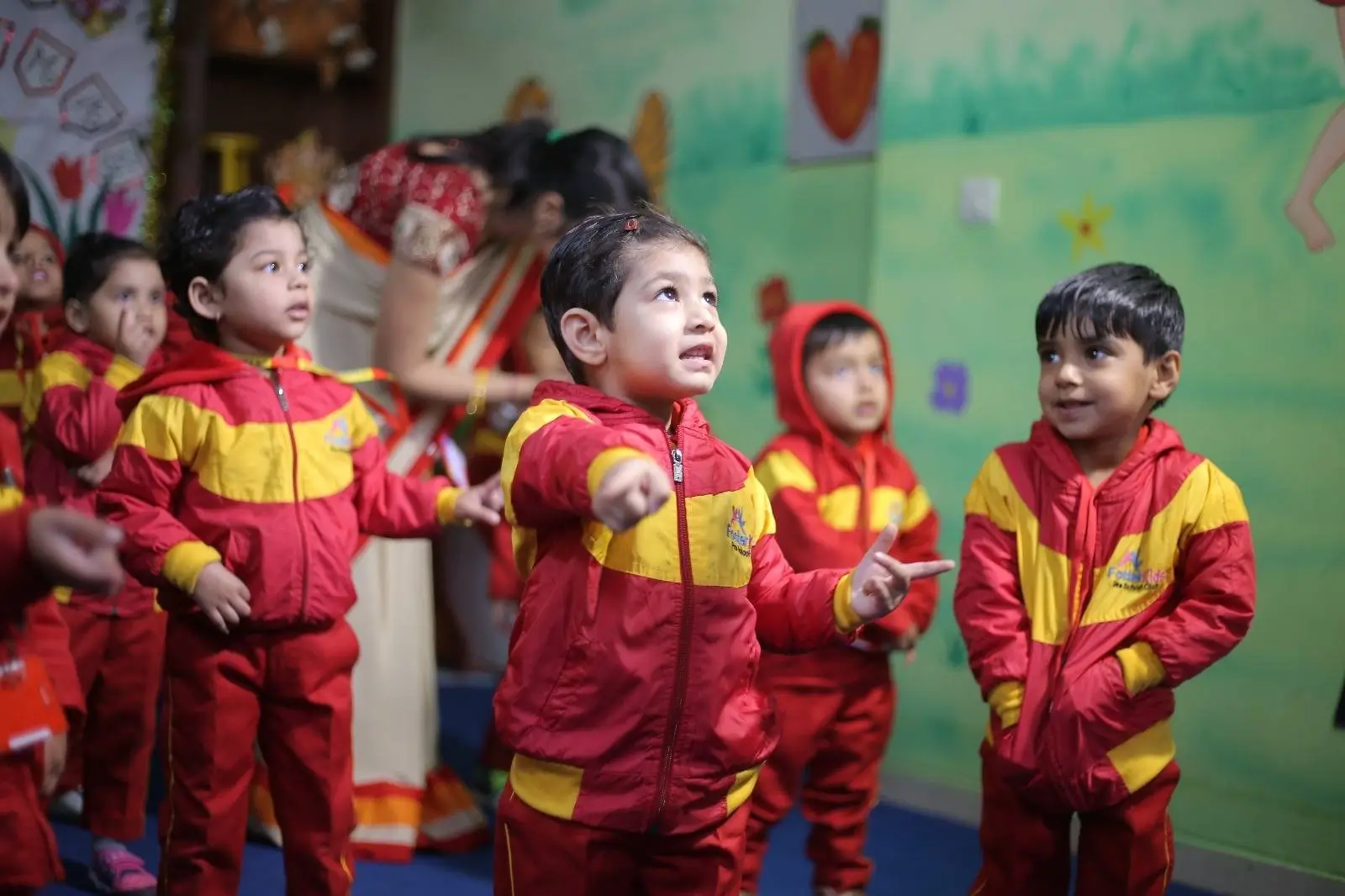Play School Present Framework
At the Play School Present Scenario children meet friends from different backgrounds. These interactions teach them to navigate social situations along with taking turns, listening and responding appropriately to others.
Building Communication Skills
Through institutional sports and games, children enhance their conversational skills. They learn to express their thoughts and feelings, understand non-verbal cues and communicate in meaningful conversations. Role of Teachers in Play Schools Facilitators of Learning Teachers in play school present scenario act as facilitators rather than instructors. They guide children’s play experiences, The Importance of Early Childhood Education.
- Overview of play schools
- What Are Play Schools?
- Definition and purpose
- Difference from traditional preschools
- The Historical Evolution of Play Schools
- Origins and development
- Key milestones
- Advantages of Play Schools
- Cognitive development
- Social skills enhancement
- Emotional growth
- Cognitive Development in Play Schools
- Learning through play
- Activities that promote cognitive skills
- Social Skills Enhancement
- Interaction with peers
- Building communication skills
- Emotional Growth in Play Schools
- Developing self-awareness
- Managing emotions
- Play Schools vs. Traditional Preschools
- Curriculum differences
- Teaching methodologies
- Key Components of a Quality Play School
- Qualified teachers
- Safe and engaging environment
- Parental involvement
- Role of Teachers in Play Schools
- Facilitators of learning
- Importance of teacher-child interactions
- Creating a Safe and Engaging Environment
- Importance of safety
- Designing a stimulating learning space
- Parental Involvement in Play Schools
- Encouraging active participation
- Benefits for children and parents
- Challenges Faced by Play Schools
- Funding and resources
- Balancing play and academics
- Success Stories: Play Schools Making a Difference
- Real-life examples
- Testimonials from parents and educators
- Conclusion
- Recap of the importance of play schools
- Final thoughts on early childhood success
- FAQs
- What is the ideal age for enrolling in a play school?
- How do play schools differ from daycare centres?
- Can play schools help with early detection of learning disabilities?
- How can parents choose the right play school?
- Are play schools necessary for all children?
The Secret to Early Childhood Success: Why Play Schools Matter
Early Adolescence is a critical period in improving and shaping a child’s future position and behavior. The importance of early adolescence cannot be overstated and sports academies play an important role in this phase. These provide a very unique environment for young.
What Are Play Schools?
Play schools, also known as nursery schools or kindergartens, are usually centers for children between the ages of two and five. They focus on learning through play, encouraging children to explore, experiment and participate in their structured yet flexible environment. Difference from Traditional Preschools Unlike traditional preschools, which may also have a particular formal academic structure, play faculties emphasize unstructured play as a primary method of learning. This approach promotes holistic development and allows young people to explore at their own pace and in accordance with their hobbies.
The Historical Evolution of Play Schools
The concept of play-based education dates back to the early nineteenth century with pioneers such as Friedrich Frobel, founder of the first kindergarten. Over time, the play school model has evolved to incorporate contemporary pedagogical theories and practices. Key Milestones From Froebel’s kindergarten to the modern play school included major trends including the Montessori Method, the Reggio Emilia Method and the Waldorf School. Each of these models helped refine the concept of play school and cemented the importance in the early school years. Advantages of Play Schools Cognitive Development Play schools foster mental development by providing stimulating activities and problem solving. Through play, children learn concepts such as numbers, shapes and colors, laying a strong foundation for future academic success. Improving social skills Interaction with peers in a play school environment allows children to increase basic social skills. They discover ways to be proportionate, cooperate and resolve conflict, which can be important for building healthy relationships. Emotional Growth Play schools contribute to the emotional development of young children by helping them identify and manage their emotions. Activities and routines build self-control and empathy in children, preparing them for school and social life development. Cognitive Development in Play Schools Learning Through Play Play schools promote cognitive growth by imparting sports that stimulate questioning and problem solving. Through play, young children’s explore concepts such as numbers, shapes and shades, laying a solid foundation for future success. Activities That Promote Cognitive Skills Play schools offer a variety of activities designed to stimulate cognitive development. Puzzles, matching games, and hands-on experiments encourage logical reasoning and problem-solving. Outdoor play also supports physical coordination and spatial awareness. Emotional Growth in Play Schools Developing Self-Awareness Play schools help children become more self-aware by encouraging them to recognize and articulate their emotions. Activities like role-playing and group discussions provide opportunities for children to reflect on their experiences and feelings. Managing Emotions Learning to control feelings is a crucial issue of emotional boom. Play school present scenario create a supportive environment where children can apply coping strategies and resilience. Techniques consisting of deep breathing, physical mindfulness games and great reinforcement are usually used to help children deal effectively with their emotions.
Play Schools vs. Traditional Preschools
Curriculum Differences The curriculum in play schools is less rigid compared to standard preschools. It specializes in experiential learning as opposed to rote memorization. Activities are designed to be flexible and allow children to discover their hobbies Teaching Methodologies Play schools hire different coaching methodologies that prioritize the herbal interest of the child. To make learning engaging and relevant, methods such as guided play, business-based knowledge acquisition and thematic learning are used.
Key Components of a Quality Play School
Qualified Teachers The best of teachers is the most important thing in play school present scenario now a days. Educators in these settings are qualified to understand child improvement and facilitate learning through play. They create a nurturing environment that encourages exploration and discovery. Safe and Engaging Environment A safe and stimulating environment is essential for effective learning. Playschools are designed with a child’s safety in mind, providing a safe playground, age-appropriate toys and materials that inspire creativity and exploration. Parental Involvement Active involvement of parents improves the schooling experience. Schools that inspire mother and father to participate in activities, volunteer, and talk to teachers often create a cohesive community that helps a child improve. providing resources and support while allowing children to take the lead in their learning journey. Importance of Teacher-Child Interactions Positive interactions between teacher and child are essential. These interactions build agreement, build confidence and foster a love of learning. Teachers who are attentive, empathetic and attentive to children’s needs create a supportive atmosphere of learning.
Creating a Safe and Engaging Environment
Importance of Safety Security is a top priority at playschools. From safe play areas to childproof school rooms, providing a safe environment allows children to explore and play without danger. Designing a Stimulating Learning Space Well-designed domain knowledge acquisition stimulates curiosity and creativity. Playschools often use themed playgrounds, sensory stations and outdoor play areas that offer numerous learning opportunities.
Parental Involvement in Play Schools
Encouraging Active Participation Play schools benefit greatly from the active participation of parents. Parents can engage in sports, percentage their competencies and offer insight into their toddler’s hobbies and desires. Benefits for Children and Parents Parental involvement not only supports children’s learning, but also strengthens the bond between them and their toddler. It allows mother and father to have a deeper understanding of their child’s improvement and the educational technique of playschools.
Challenges Faced by Play Schools
Funding and Resources Many play schools face challenges related to funding and resources. Limited budgets can affect the quality of materials, facilities, and staffing, making it difficult to provide an optimal learning environment. Balancing Play and Academics Finding the right balance between the play and the teachers is a common thing. While play is essential, integrating academic skills into a playful context requires thoughtful planning and execution.
Success Stories: Play Schools Making a Difference
Real-Life Examples Many play schools around the world have made a significant impact on children’s lives. Stories of children thriving in these environments highlight the effectiveness of total play-based learning. Testimonials from Parents and Educators Parents and educators often share nice news and results from play schools. Testimonials highlight the benefits of play-based training that fosters a love of learning and prepares children for future academic challenges.
Conclusion
Play schools are essential in laying inspiration to fulfill early adolescence. They provide a nurturing environment in which children can develop cognitive, social and emotional skills through play. The specific approach of play faculties not only prepares children best for formal schooling, but also gives them a lifelong love of learning. .
FAQs
What is the ideal age for enrolling in a play school? The ideal age to enroll in a play school is usually between two and three years old. At a time when children are beginning to expand their social competence and are ready to interact with friends in a structured environment. How do play schools differ from daycare centres? Higher education awareness of early years education and development activities through play while daycare centres routinely provide custodial care. Play schools have an established curriculum aimed at supporting learning and improvement. Can play schools help with early detection of learning disabilities? Yes, play schools can be a source of early detection of disabilities. Trained instructors can look at children’s behaviour and development, detect capacity problems early, and recommend further assessment if needed. How can parents choose the right play school? Parents should consider factors such as the school’s philosophy, teacher qualifications, safety measures and the overall environment. It can be helpful to visit schools, talk to teachers, and get feedback from other parents. Are play schools necessary for all children? Although no longer mandatory, play school present scenario offer significant boons that could give kids a head start on their educational journey. They provide a dependent environment in which children can develop basic skills so that one can serve them well in the later stages of schooling.





